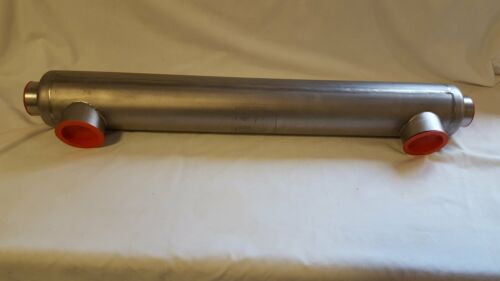- Joined
- Jan 9, 2017
- Messages
- 1,142
- Reaction score
- 1,063
I will have to watch it. The HE I am using the domestic hot water flows through the tiny tubes and the aquarium water flows through the shell of the HE if that makes a difference. So the aquarium water doesn't have any small restrictions. Also the aquarium water doesn't drain out of the HE. The HE is always full of aquarium water if that makes a difference. If need be I can increase the aquarium water flow through the HE which would heat the aquarium water flowing through it to a lower temp.Ditto on this subject. I would worry about build up in the heat exchanger over time and if that time comes the only way to clean it out is with chemicals like a scale dissolver. Tankless water heaters need to be be back flushed annually with chemicals I would think that the heat exchanger would need to same attention




















